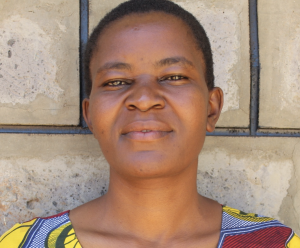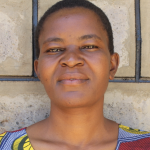The 467 students and teachers at Shivikhwa Primary School struggle daily to access sufficient water to meet their needs. Their only water source is unreliable and causes them more harm than good.

The dug well dries up seasonally and is unable to provide enough water. The little water it provides is unsafe for drinking, and those who drink it suffer from water-related illnesses such as diarrhea and typhoid.
"[The] water crisis impacts the students by consuming most of the learning time [because] students spend more time fetching water. They reach the school compound at 6:30 am and rush to the well to fetch water. This forces them to queue because first come, first served. After fetching water, they rush to their classes," shared field officer Rose Serete.
Rose described the well the students rely on each day. "It is open and risky to children. The well has a big opening without a lid. Fetching water from the well by using a rope is dangerous and cumbersome to our young learners. The well is very close to the playground, which is dangerous to learners for they can fall in. The water is not safe for drinking for teachers and learners.

"I personally am not comfortable with this water because I have suffered from typhoid, and all my money goes to medication. This has forced me to carry water from home because I don't trust this water," said 52-year-old deputy headteacher Jane Werfula, shown above collecting water.
But teachers are not the only ones suffering from consuming unsafe water.
"[I] am so weak because immediately [when] I take this water, l start to [have] diarrhoea. All the tests have been done [so I] am forced to drink boiled water which is hard sometimes for my parents to prepare," said 12-year-old John M. (shown below).

Installing a well on the school campus will enable students and teachers like John and Jane to drink water without fear and regain their health. And then, they will be able to focus on learning so students can hope for a brighter future.
Water at schools is unique, which is why we need unique solutions.
The Proposed Solution, Determined Together...
At The Water Project, everyone has a part in conversations and solutions. We operate in transparency, believing it benefits everyone. We expect reliability from one another as well as our water solutions. Everyone involved makes this possible through hard work and dedication.
In a joint discovery process, community members determine their most advantageous water solution alongside our technical experts. Read more specifics about this solution on the What We're Building tab of this project page. Then, community members lend their support by collecting needed construction materials (sometimes for months ahead of time!), providing labor alongside our artisans, sheltering and feeding the builders, and supplying additional resources.
Water Access for Everyone
This water project is one piece in a large puzzle. In Kenya, Sierra Leone, and Uganda, we're working toward complete coverage of reliable, maintained water sources that guarantee public access now and in the future within a 30-minute round trip for each community, household, school, and health center. One day, we hope to report that this has been achieved!
Training on Health, Hygiene & More
With the community's input, we've identified topics where training will increase positive health outcomes at personal, household, and community levels. We'll coordinate with them to find the best training date. Some examples of what we train communities on are:
- Improved hygiene, health, and sanitation habits
- Safe water handling, storage & treatment
- Disease prevention and proper handwashing
- Income-generation
- Community leadership, governance, & election of a water committee
- Operation and maintenance of the water point
Handwashing Stations
Alongside each water source, we also provide two new gravity-fed handwashing stations that will allow everyone at the school to wash their hands without running water. Handwashing is so important to help prevent future water-related illnesses in the school community.
The student health club will maintain the stations, fill them with water, and supply them with soap (which we will teach the school community how to make during the training!).
VIP Latrines
In addition, we will construct two triple-door Ventilated Improved Pit (VIP) latrine blocks designed to prevent fecal disease transmission. Each latrine will have a cement floor, which is easy to use and clean regularly. Three doors will serve the girls, and three doors will serve the boys.





 Borehole Well and Hand Pump
Borehole Well and Hand Pump
 Rehabilitation Project
Rehabilitation Project


































